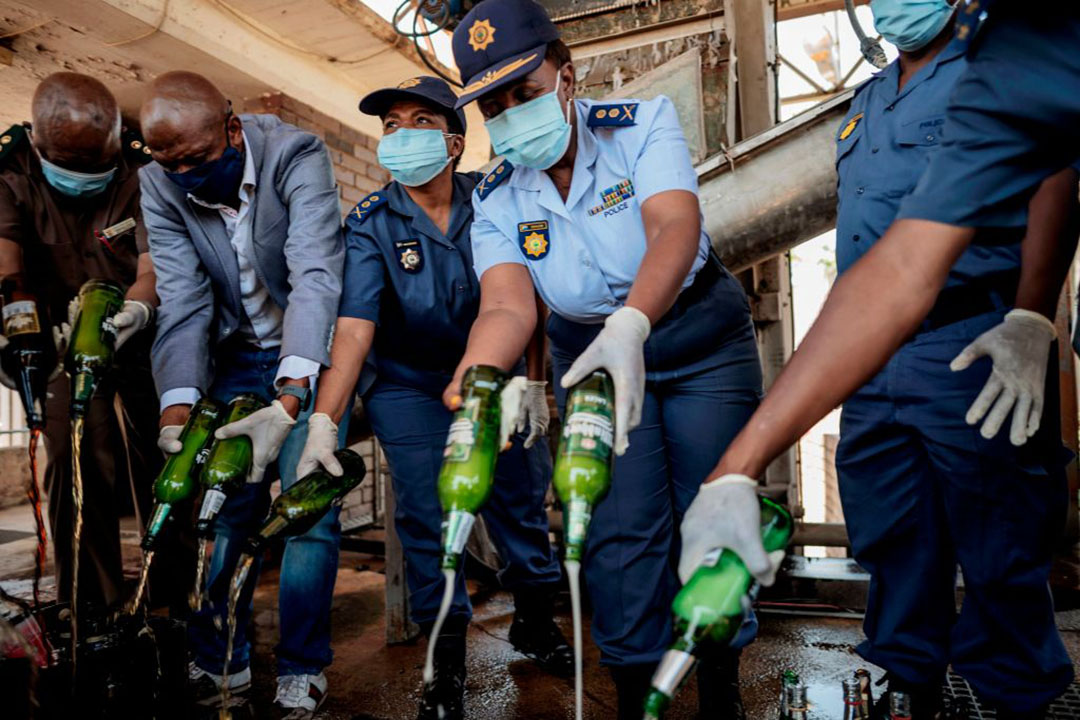South Africa Applying COVID-19 Lessons to Driving Law
ADF STAFF
During the COVID-19 pandemic, the South African government restricted the purchase and consumption of alcohol. The goal was to ease the burden on the country’s health care system from people with alcohol-related trauma.
It worked.
More than two years later, there are plans to apply those lessons to a new zero-tolerance drunken driving rule.
“This is long overdue,” anti-crime activist Yusuf Abramjee told South African newspaper Fourways Review. “Far too many people are killed on our roads as a result of drunk drivers. We need strict law enforcement. We must also ensure that those arrested for drunk driving are convicted and punished.”
The proposal now going through the legislative process would lower the legal blood alcohol content (BAC) for drivers to 0%. Its backers are citing data collected from the COVID-19 lockdowns in 2020 and 2021.
The Department of Transport cited a new report that shows a clear connection between alcohol use and the number of accidents seen on South Africa’s roads during times of COVID-19 restrictions.
“Traffic accident numbers are directly influenced by the number of vehicle kilometers travelled and alcohol intake, both of which were significantly lower during the lockdown,” researchers wrote in the June 30 report.
“When vehicle volumes on major roads fell dramatically after lockdown, relative to the same period in the previous year, so did fatal accidents. Particularly striking was the massive reduction in fatal crashes during the Easter period. As restrictions were slowly eased, accident numbers started to rise again.”
Transport minister Fikile Mbalula announced the zero-tolerance approach in a 2020 news conference.
“Research conducted by the RTMC [Road Traffic Management Corp.] in collaboration with the South African Medical Research Council and the University of South Africa shows that driver alcohol intoxication accounts for 27.1% of fatal crashes in the country,” he said.
“This is estimated to cost the economy 18.2 billion [rand] annually. We need to strengthen the law and ensure that innocent lives are actually saved.”
Health care and police data estimates show that alcohol is involved in at least 40% of all emergency hospital admissions — a number that might be much higher, according to analysts and officials.
Before the pandemic, 34,000 trauma cases arrived at South African emergency rooms each week. After the first month of the nationwide lockdown, that figure plunged to about 12,000 admissions.
“If we end the prohibition on alcohol sales, we’re going to see about 5,000 alcohol admissions in trauma units coming back into the system [each week],” said Professor Charles Parry, who analyzed the decline in in trauma cases for South Africa’s Medical Research Council.
“It’s a significant impact.”
Although South African President Cyril Ramaphosa approved the amended bill before it was introduced in 2020, it is still going through the legislative process before it can become a law.
“There are proven links between the sale and consumption of alcohol and violent crime, motor vehicle accidents and other medical emergencies at a time when all public and private resources should be preparing to receive and treat vast numbers of COVID-19 patients,” he said in a 2020 statement.
“Alcohol is a hindrance to the fight against coronavirus.”
Alcohol consumption in South Africa
- 31% of people age 15 and above drink.
- 59% are heavy or binge drinkers.
- 26% of alcohol is homemade or illegally produced.
- Up to 60,000 sale and distribution outlets are licensed.
- About 120,000 are not licensed.
Source: 2018 World Health Organization report and 2016 South African government report


Comments are closed.